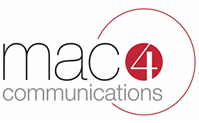
I can probably guess your age based on whether grammatical errors bother you. I’ll drop a decade if you rarely recognize them. And drop still another decade if the word “grammar” never crosses your lips.
No matter what your age, you should care whether your writing is clear and error-free. Like it or not, plenty of people in your target audiences will negatively judge you if your writing contains grammatical, spelling or typographical mistakes.
More importantly, you might unintentionally change the meaning of what you’re trying to communicate. Who wants to be the butt of employee jokes after writing about an amazing Super Bowel experience?
Let’s take a quick look at several of the most common no-nos.
Misplaced phrases
After rotting in the cellar for weeks, Jill brought some potatoes upstairs.
You don’t need to remember (or have learned) sentence diagramming to find the problem here. Just realize that whenever you use an introductory phrase like this, it should be describing the subject that follows the comma. If Jill were rotting in the cellar for weeks, I doubt she’d be in any condition to brave the stairs with potatoes in hand.
Over-capitalized
Some Managers in various Departments have never met a Capital Letter they didn’t like.
If you don’t see anything wrong with this sentence, you ARE that manager. Internal style guides notwithstanding, there are some basic rules that make it easier to avoid the over-cap trap. In general, don’t capitalize anything but proper nouns.
In employee communications, incorrectly capitalizing job titles is practically a rite of passage. Just know that if the title comes BEFORE the person’s name, the first letter of each word — except for small connecting words such as “of” or “and” — should be capitalized. But if the title comes AFTER the name, lower-case letters are preferred. See how they differ in this example:
According to President and CEO Nancy Gold, all tri-state sales executives will now report to
John Quincy, regional sales director.
Keep it straight
Even the most dedicated grammarsaurians may occasionally flub when it comes to using:
- they’re/their/there; you’re/your; it’s/its
- then/than
- affect/effect
- fewer/less
If you’re not sure about the correct usage here, learn it. Then remind yourself to look for errors like this during the editing phase. Commit to getting it right before you unleash your writing into the world.
The last word
Oh, and puh-lease — manually proofread what you write once you’re finished! Better yet, seek out a fresh pair of eyes to double-check your work. Computer spelling and grammar tools are notorious for missing errors and for being flat-out wrong in some cases. You’re better than that!
Author: Lauren Somers

